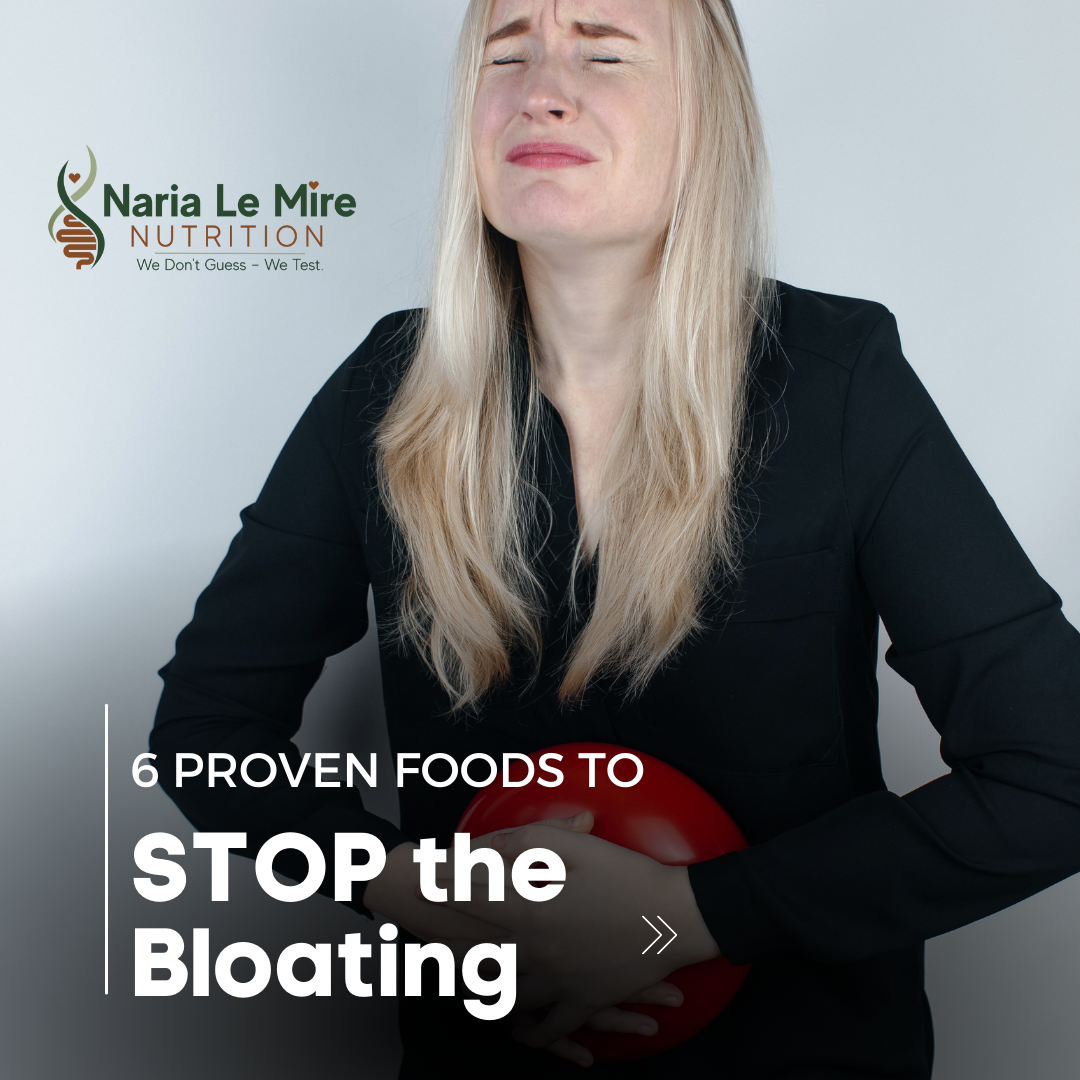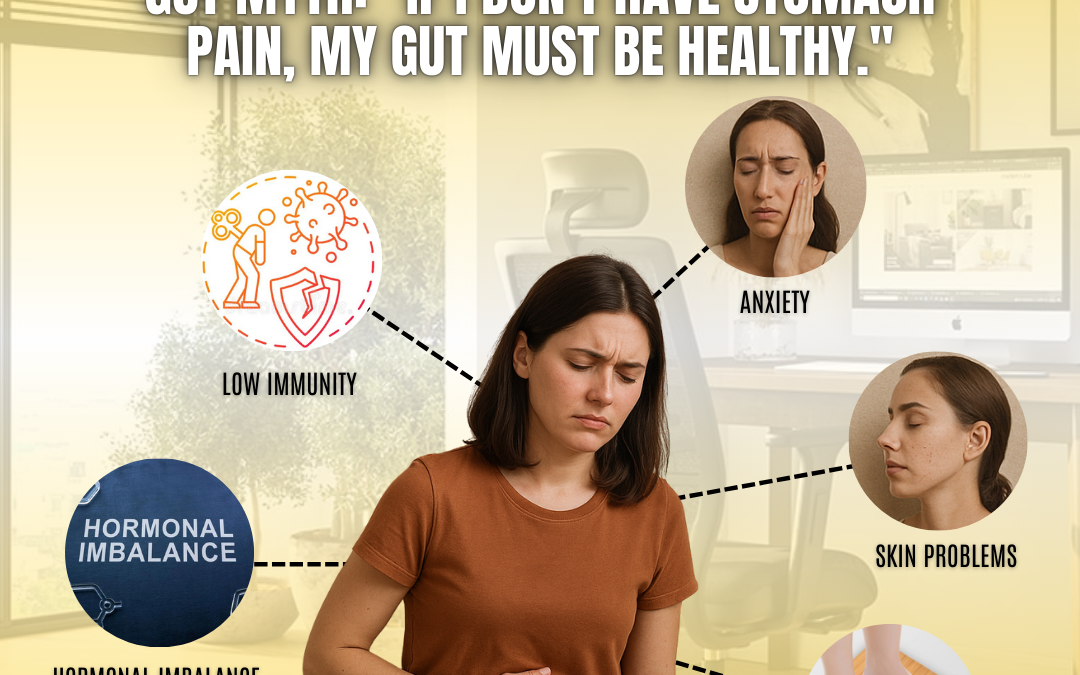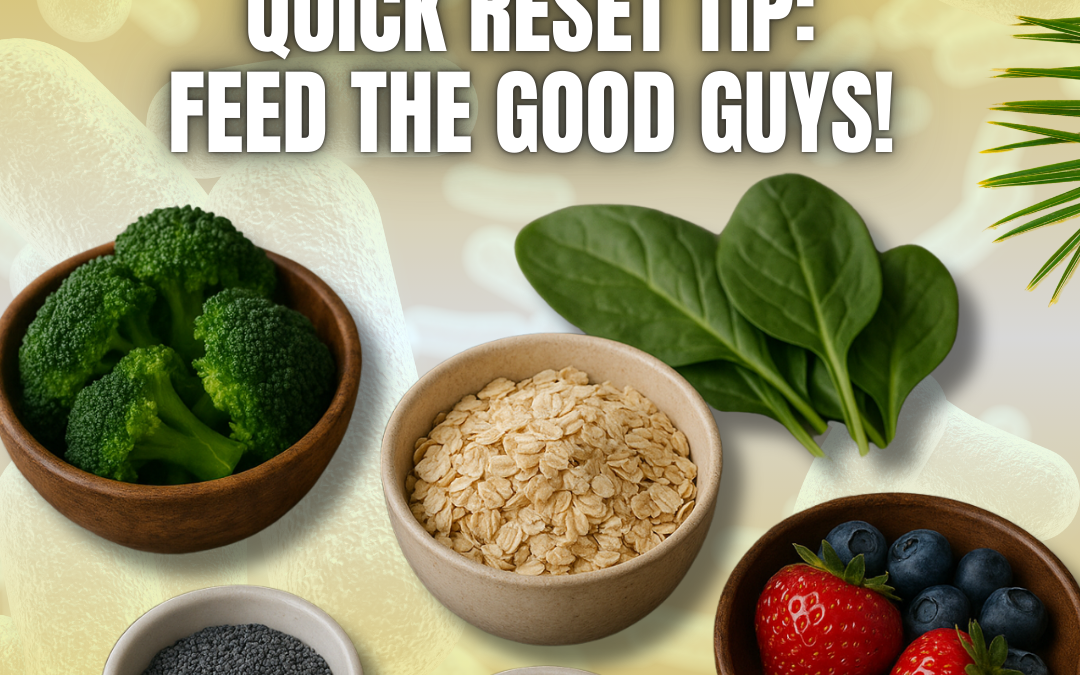Top 6 foods that stop the gas bloating!
How many times did you think “If I eat that, I KNOW I’m going to pay for it later”?
The truth is, probably more than you can count if you clicked on this blog post.
As a registered dietitian nutritionist who specializes in the gut, I see so many different cases but it always comes back to how’s the gut doing.
Gut health is so much more than most people may think.
Many may consider taking probiotics as the best thing they can do to prevent bloating and improve their gut health. Which it can but it can also cause further damage!
Gut health is so much deeper than simply taking probiotics, especially if you’ve been diagnosed with conditions such as irritable bowel disease (IBD) or small intestinal bacterial overgrowth (SIBO).
In the last few weeks, I’ve been flooded with questions about how to prevent bloating for diverticulosis and chronic constipation.
Today, I’d like to provide a few tips for you to consider in your gut health journey. These suggestions are general so be careful and discuss with your registered dietitian nutritionist how this may benefit your gut health journey. So, let’s get right into it!
Why do some experience bloating?
So many reasons! But the root cause is, that the digestive process is having trouble and needs help!
Yes, symptoms like bloating is the body talking, it’s saying “I need some help”.
When this happens, we have to determine WHY and HOW to help.
Sometimes it’s simple. Like being intolerant to dairy. The options are either to stop drinking the milk, reduce the portion, or take the digestive enzymes to help the digestive process.
Other top reasons include overeating, consuming gas-producing foods such as beans and broccoli, or constipation.
However, other times it’s difficult. Especially with conditions like IBD, SIBO, diverticulosis, and more!
That’s when we come into play in our client’s gut healing journey.
Either way, if you’re experiencing bloating and are not sure why. Let’s keep going and try a few things
A short-term solution may be to take a medication or laxative but the truth is, that’s only a short-term solution. To avoid this from happening again, you’ll have to take the time to get to the root problem.
No one can escape doing this.
Best foods to STOP the bloating
- Pineapple: Pineapple contains natural enzymes that have a mild laxative effect on the digestive system and therefore, consuming pineapple can help stimulate bowel movements and relieve constipation. Pineapple also contains bromelain, a mixture of enzymes known for its digestive properties! How cool is that! Bromelain helps break down proteins in the digestive system, making it easier for the body to absorb nutrients from food. This enzyme can aid in the digestion of protein-rich foods and reduce bloating and discomfort.
- Kiwi: Kiwi contains natural enzymes, including actinidin, which aid in the breakdown of proteins. These enzymes can enhance digestion by assisting in the breakdown of food, making it easier for the body to absorb nutrients. Kiwi contains prebiotic substances, such as oligosaccharides, which fuel beneficial gut bacteria. By nourishing these probiotic bacteria, kiwi supports a healthy balance of gut flora, which is essential for optimal digestion and overall well-being. It’s also a low-FODMAP (Fermentable Oligosaccharides, Disaccharides, Monosaccharides, and Polyols) food!
- Papaya: Papaya contains an enzyme called papain, which aids in the breakdown of proteins and facilitates digestion. This tropical fruit also contains fiber and water, which can help prevent constipation and promote regular bowel movements, reducing bloating. Remember, reaching your daily fiber goal and STAYING there is a must to prevent bloating. If your fiber intake is too variable, the bloating and constipation may continue.
- Peppermint: Peppermint contains menthol, a compound that has been found to relax the muscles of the digestive tract and relieve symptoms of irritable bowel syndrome, including bloating and gas. Drinking peppermint tea or using peppermint oil capsules may help soothe the digestive system and alleviate bloating. A lot of my clients love drinking tea and report improvement in their digestive issues. Nice and easy, especially on cold mornings or nights.
- Berries: This should be a day-to-day fruit everyone eats! Berries such as strawberries, blueberries, and raspberries are rich in dietary fiber, including soluble and insoluble fiber. Remember, get to your daily fiber goal and stay there to prevent the bloating, I can’t say this enough! Berries are also packed with antioxidants, such as flavonoids and anthocyanins, which have anti-inflammatory properties. Inflammation in the digestive tract can contribute to bloating and discomfort. By reducing inflammation, berries help alleviate bloating and promote overall digestive wellness.
- Low FODMAP: These carbohydrates can ferment in the gut, leading to gas and bloating, especially in individuals with irritable bowel syndrome (IBS) or other digestive sensitivities. Choosing low-FODMAP fruits like berries can help minimize digestive discomfort. However, following a low fodmap diet should only be when indicated as it can drastically change day-to-day life. Also, for most, this diet is NOT permanent. This is important to note as most people believe that once you follow this diet, it’s a forever thing. Essentially, it’s just that the body heals and can digest food better.
BLOATING, GAS AND PAIN, BE GONE!
The truth is bloating, flare-ups, and the general pain due to maldigestion are uncomfortable! And this pain tends to affect the day-to-day life of those affected. Although these tips work for many people, sometimes it’s more difficult than trying these foods. That is why our registered dietitian nutritionist loves to reach more people and help them heal their gut. When people experience maldigestion it usually takes a series of steps to heal and that begins with finding out what the root problem is. At Naria Le Mire Nutrition, we test the gut to better understand the balance of the bacteria and learn if any overgrowth is occurring. Our recent YouTube episode explains a few things we review to create personalized health blueprints for our clients. That allows us to learn what support the gut needs while it’s healing. Looking to improve your gut health but not sure how? Email us today at narialemirenln@gmail.com to set up a free discovery call.




